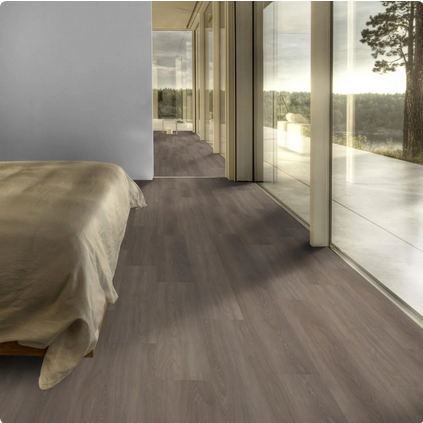
Author, Written by: P. Hirani (Wood flooring Expert)
When choosing new flooring, many homeowners focus on colour, style, or material. While these elements are important, one factor that is often overlooked is thickness. The thickness of your flooring plays a key role in both comfort and durability. Whether you are installing laminate, vinyl, or engineered wood, understanding how thickness affects performance can help you make the right decision for your home.
Why Does Thickness Matter?
Flooring thickness is more than just a number. It influences how your floor feels underfoot, how well it withstands daily wear, and even how easy it is to install. Thicker floors generally provide better stability, insulation, and noise reduction. On the other hand, thinner floors can be more budget friendly and work well in certain spaces.
Comfort Underfoot
The thicker the plank, the more solid and cushioned the floor feels when you walk on it. In high traffic areas like hallways and kitchens, thicker flooring can reduce foot fatigue and provide a sturdier feel. This is especially important if you plan to spend long hours standing, such as when cooking or entertaining guests.
-
Thin Flooring (6–8mm): Feels firm underfoot, less forgiving, best suited for low traffic areas or secondary rooms.
-
Medium Thickness (9–12mm): A comfortable balance for most households, offering stability without feeling too rigid.
-
Thick Flooring (12mm and above): Offers the most comfort, often with better sound absorption and a premium feel.
Durability and Longevity
Durability depends not only on the material but also on the thickness of the flooring. Thicker planks are less likely to bend, chip, or wear down quickly.
-
Laminate Flooring: A thicker laminate (10 to 12mm) resists dents and damage more effectively than thinner options.
-
Luxury Vinyl Plank (LVP): The wear layer thickness (measured in mils) is crucial. A thicker wear layer means greater resistance to scratches and stains.
-
Engineered Wood: Thicker boards allow for more sanding and refinishing over time, extending the life of your floor.
Noise and Insulation
If you live in a flat or have multiple levels in your home, flooring thickness can help with sound reduction. Thicker planks often absorb more impact noise, making footsteps quieter. They also provide better thermal insulation, keeping rooms warmer and more comfortable.
Installation Considerations
Thicker flooring may require adjustments to door frames, skirting boards, or transitions between rooms. For DIY projects, thinner click lock systems are easier to handle, while professionals may prefer thicker planks for long term stability.
Which Thickness Is Right for You?
-
For high traffic family homes: Opt for thicker laminate (10 to12mm), rigid core vinyl with a strong wear layer, or engineered wood with a solid top layer.
-
For rental properties or budget friendly updates: Thinner laminate or vinyl (6 to 8mm) works well, especially if longevity is less of a concern.
-
For luxury spaces or long term investment: Choose the thickest options available within your material type for maximum comfort and durability.
Quick Tips to Remember
-
Thicker does not always mean better considering the wear layer and overall build quality.
-
Balance comfort, durability, and budget before making a choice.
-
Think about the space: bedrooms may not need the same thickness as a busy kitchen or hallway.
Final Word
Flooring thickness might seem like a small detail, but it makes a big difference in how your floors perform and feel over time. By choosing the right thickness for your lifestyle and space, you ensure comfort, durability, and a long lasting investment in your home.
About Author:
Peter H. is a flooring product expert who knows all about different types of flooring materials. He shares his knowledge in blogs to help readers make the best choices for their spaces.
